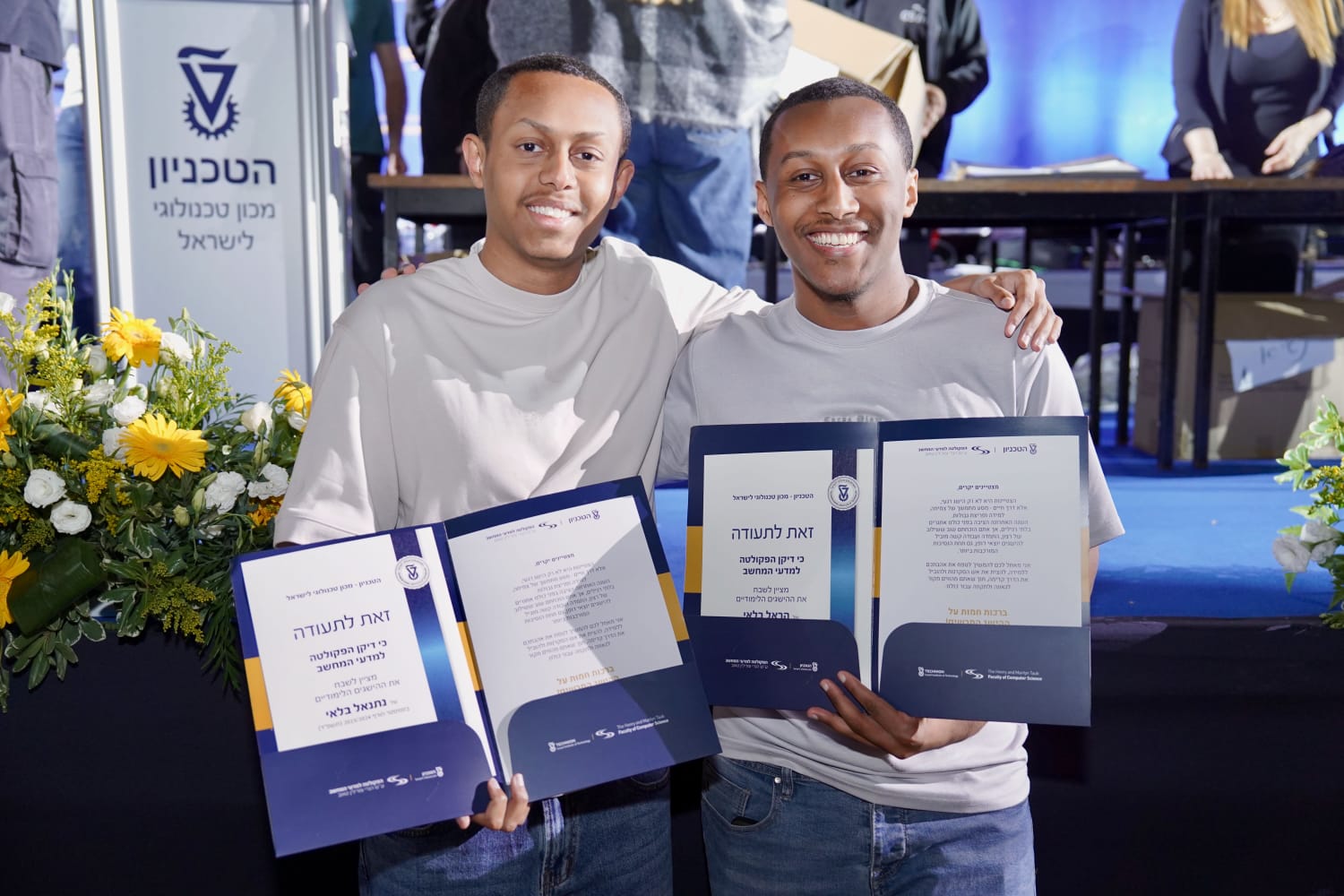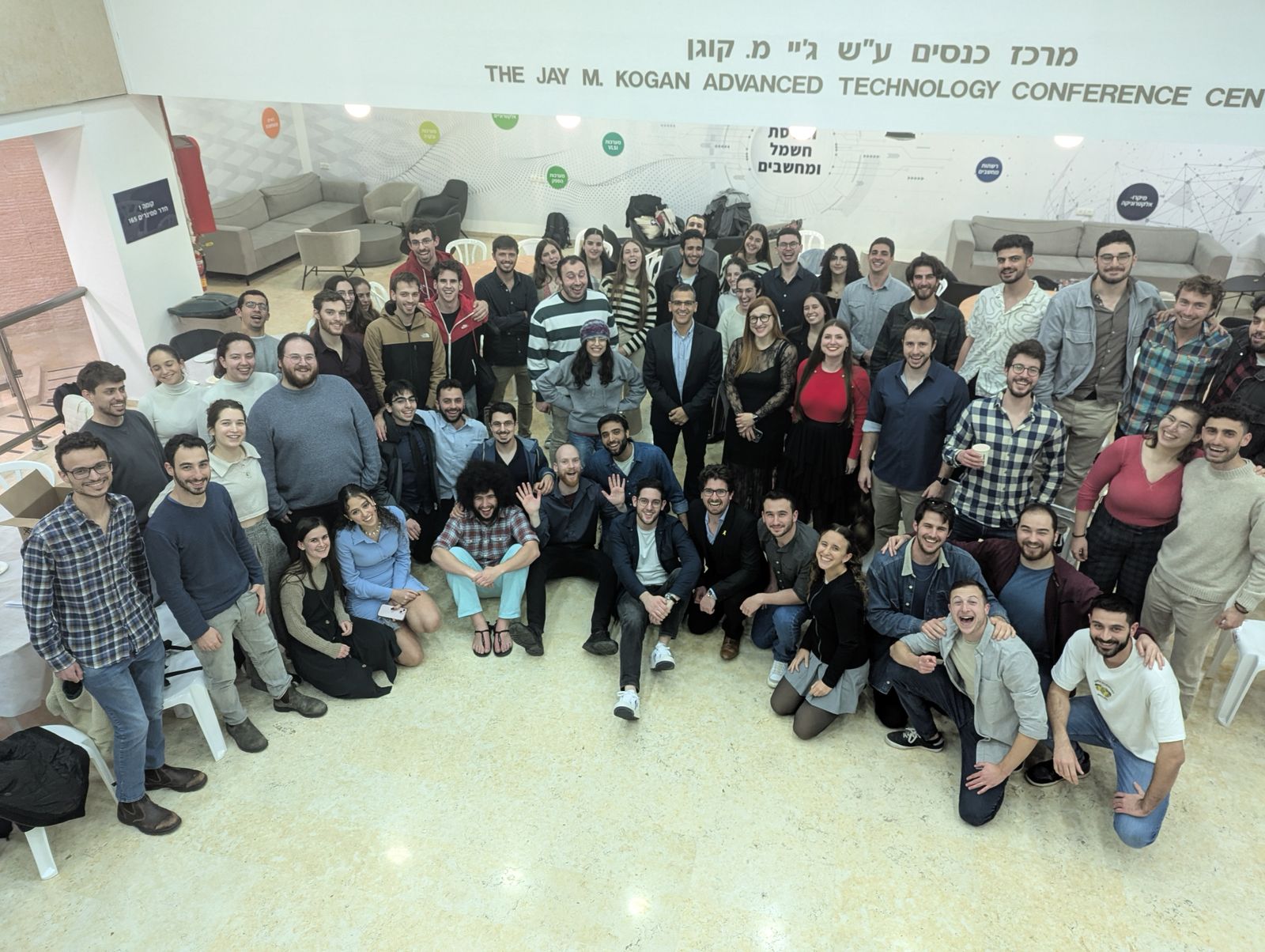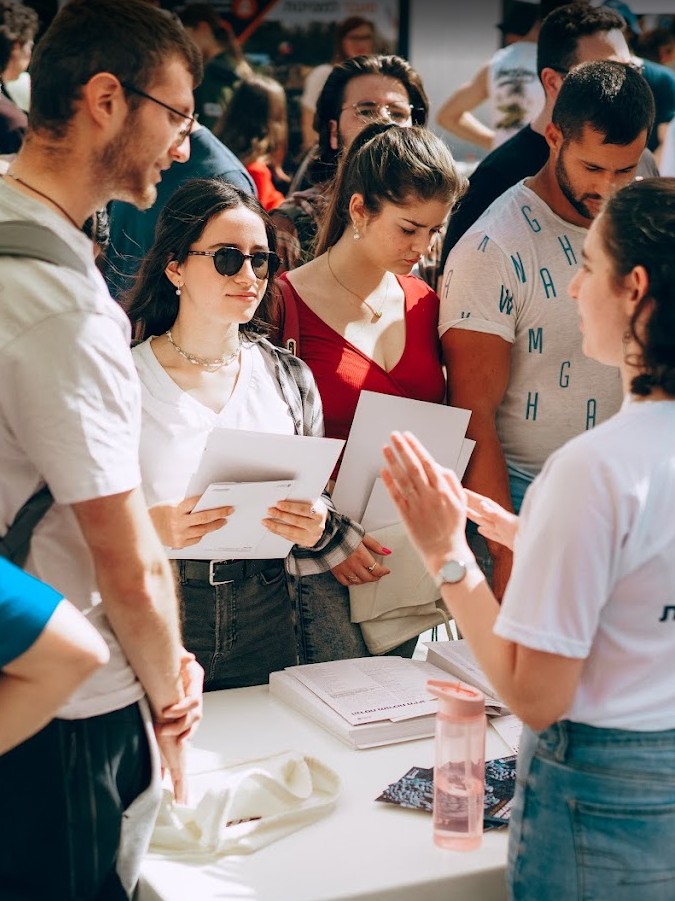תאומים, שותפים, מצטיינים
התאומים הראל ונתנאל בלאי גרים יחד ולומדים יחד בטכניון במסגרת תוכנית העתודה "פסגות" ותוכנית המצוינות "לפידים" של הפקולטה למדעי המחשב ע"ש טאוב

התאומים הראל ונתנאל בלאי גרים יחד ולומדים יחד בטכניון במסגרת תוכנית העתודה "פסגות" ותוכנית המצוינות "לפידים" של הפקולטה למדעי המחשב ע"ש טאוב

מחקר שנערך בפקולטה להנדסת ביוטכנולוגיה ומזון בטכניון מגלה הבדל בין נשים וגברים בעיכול חלבונים ממקורות שונים

שנתיים אחרי חנוכת בית אנייר ע"ש מרק המון – הטכניון חנך בניין מעונות נוסף על שם אחיו הנרי ז"ל

הטכניון וחברת הסטארטאפ דקארט מכריזים על שיתוף פעולה אסטרטגי ומחקרי במטרה להקים מרכז מחקר משותף לתחום הבינה המלאכותית, שיחזק את יכולות המחקר, פיתוח הידע והחדשנות הטכנולוגית באקדמיה. במסגרת ההסכם תאמץ החברה את תוכנית המצוינים שתיקרא מעתה: תוכנית המצוינים טכניון-דקארט.


תערוכת "מראות מקום"
01.06.2025 ראשון, בשעה 09:00
הוספה ליומן

"טכניון על הבר" - הרצאה אחרונה לשנת 2025
31.07.2025 חמישי, בשעה 20:00
הוספה ליומן

יום פתוח ב-ZOOM לפקולטה למדעי המחשב
17.07.2025 חמישי, בשעה 18:00
הוספה ליומן

יום פתוח לפקולטות המדעיות בטכניון
06.08.2025 רביעי, בשעה 09:30
הוספה ליומן
100000
בוגרים
18
פקולטות
15000
סטודנטים
60
מרכזי מחקר
ברחבי הקמפוס